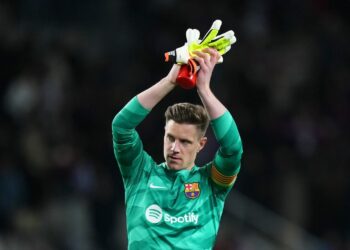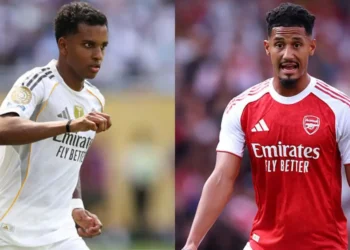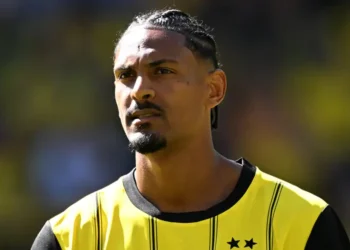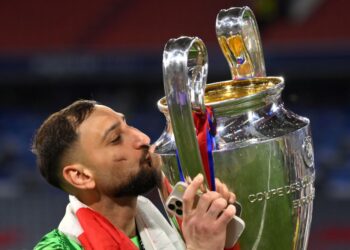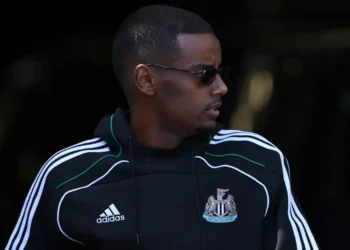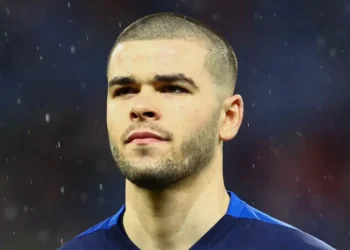Inter Milan’s transfer plans have taken an interesting turn this summer following the exit of manager Simone Inzaghi, with renewed focus on a previously stalled target—Napoli’s second-choice striker, and Italy international, Giacomo Raspadori. Despite uncertainties following the coaching change, Inter’s interest in the young forward appears to be back on track, suggesting a clear strategic vision from the club’s hierarchy, independent of managerial shifts.
Raspadori, often utilized as a rotational or impact player at Napoli, has long been admired by the Inter leadership for his versatility, work ethic, and technical qualities. The 24-year-old forward, who can operate as a central striker, second striker, or even out wide, has not fully cemented a starting place under various Napoli managers due to the presence of Victor Osimhen and other attacking talents. Nonetheless, his performances—particularly in cup competitions and as a substitute—have earned him a steady spot in the Italian national team squad, reinforcing his pedigree as a forward of genuine potential.
Simone Inzaghi, whose departure from Inter was confirmed earlier this summer after four years at the helm, had reportedly cooled on the idea of bringing in Raspadori, favoring a more traditional centre-forward profile to complement Lautaro Martínez. Inzaghi’s system typically relied on physical presence up front—exemplified by the likes of Edin Džeko and Romelu Lukaku during his tenure—whereas Raspadori offers more mobility and link-up play than pure goal-poaching instinct.
With Inzaghi gone, and the club expected to appoint a tactician more amenable to flexible attacking options—potentially Thiago Motta or Raffaele Palladino—Inter’s pursuit of Raspadori has gathered new momentum. Club directors Piero Ausilio and Giuseppe Marotta are said to be leading the charge, valuing the player not only for his technical qualities but also for his Italian nationality, which is increasingly valuable under Serie A’s homegrown player regulations.
Sources close to the situation suggest that initial contact has already been re-established with Napoli. Although Napoli’s new manager—likely Antonio Conte or Vincenzo Italiano—may wish to evaluate the forward in preseason before making any decisions, the Neapolitan club is understood to be open to discussions, especially if a substantial offer is tabled. Napoli, under president Aurelio De Laurentiis, are known for their firm stance on valuations, but they are also pragmatic when it comes to players on the fringes of the starting XI.
A potential deal would likely hinge on both financial terms and the player’s willingness to accept a non-guaranteed starting role at Inter, where competition remains fierce. However, Raspadori may be tempted by the chance to step into a more prominent position at a club consistently competing for domestic honors and with strong Champions League ambitions. His experience under pressure, national team involvement, and comfort playing in different systems make him a compelling option for a club in transition.
From a tactical standpoint, Raspadori’s arrival could signal a shift in Inter’s attacking identity. While the club remains anchored by the presence of Lautaro Martínez, a more mobile and technically fluid partner could unlock new attacking avenues. Raspadori’s ability to drop deep, combine in tight spaces, and contribute defensively aligns well with the modern game’s demands. This could be especially useful if Inter opt for a formation that leans on positional interchanges and attacking unpredictability rather than rigid striker roles.
There are also broader implications for Inter’s transfer market strategy. Pursuing Raspadori demonstrates a long-term view focused on sustainability and squad balance, rather than relying on aging forwards or expensive foreign imports. The move fits with Marotta’s typical approach: targeting undervalued or underutilized domestic talent and integrating them into a coherent system.
For Napoli, letting Raspadori go would not necessarily be seen as a major loss—provided the price is right. With their sights set on restructuring the squad under a new manager, offloading a player who has yet to fulfill his full potential at the club might be seen as good business. That said, they will be wary of strengthening a direct rival, especially one with a proven track record of converting raw talent into title-winning assets.
As of now, no official offer has been made, but Inter’s renewed interest in Raspadori is a storyline to watch closely this summer. With the managerial dominoes still falling across Serie A, and both clubs entering new tactical eras, a deal could materialize quickly once pre-season preparations begin. Whether Raspadori ends up at San Siro or remains in Naples, his future looks set to be one of the more intriguing subplots in the Italian transfer window.

